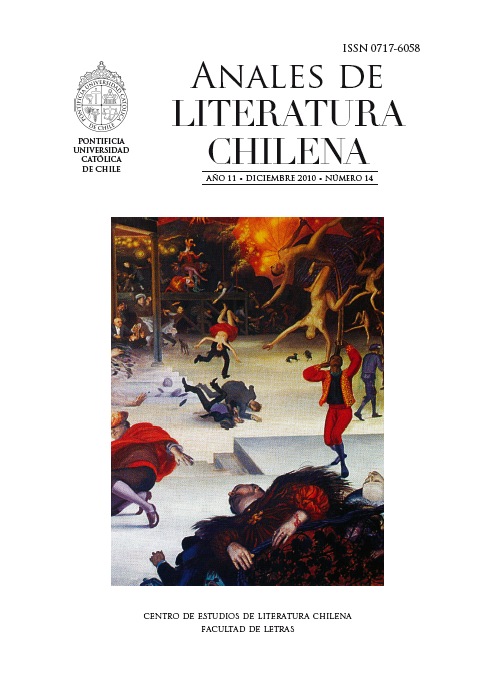History and other barbarian events: La Araucana by Alonso de Ercilla y Zúñiga in the national imaginary of Chile
Keywords:
Barbarian, Gender, NationAbstract
In this article, the formation of the national imaginary in Chile is analyzed focussing on La Araucana by Ercilla y Zúñiga as a foundational text that facilitated the creation of a “fictitious ethnicity” (Balibar) and reinforced the notion of men as exclusive subjects of history and the nation. In La Araucana, the modifications of the classic epic from Ercilla’s disident perspective towards the discourse of the Spanish conquest are pointed out to underline the importance of the movility of the sign “barbarian” and the ethnocentric presentation of European values that were later included in the national imaginary. The analysis of prevalent ideas and historical events between 1810 and 1881 demonstrate the contradictions of this national imaginary that praised the “Auracanian”, as presented by Ercilla whereas the Mapuche people, facing a new historical circumstance, were represented in the national discourses as the barbarian other who should be excluded from an imagined community which aspired to white homogeneity and elements of European civilization.
Downloads
Downloads
Published
How to Cite
Issue
Section
License

This work is licensed under a Creative Commons Attribution-NoDerivatives 4.0 International License.


